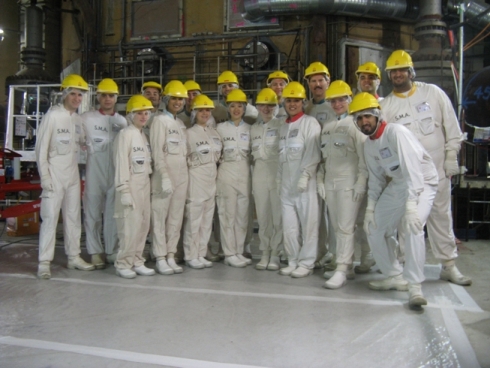
Alternative energy was on the agenda for a group of students who visited nuclear power plants and met with various agencies in France during Spring Break. The 10-day tour included stops in Marseille, Aix-en-Provence, Lyons, Brest and Paris.
“Given the current cost of energy, the course is particularly relevant,” says Professor John Tommasi. “France produces 80 percent of their electricity from nuclear power, and 96 percent of the spent material is recycled so that the problem of waste is minimized. It is one of their principle exports and has no greenhouse gases, making it a good model for the U.S.”
The trip was part of the Special Topics in Energy Economics & International Markets course, which examines economic theory, empirical perspectives and the political economy of energy supply and demand. Students will also participate in a group research project that critically examines a major energy policy issue facing New England, France or the nation.
“I gained a better understanding of how energy, unnoticeably at times, plays a major role in our lives, and how economies are influenced by the fluctuations in the different energy sources, in their availability and in how markets trade energy,” says junior Yoko Boschetti Sacco, a Managerial Economic major with a concentration in International Business and a minor in Law and in Philosophy.
The goal, says Tommasi, is for students to acquire economic fundamentals and the institutional knowledge needed to implement sound economic decisions pertaining to various energy alternatives. “I hope students will walk away with a broader perspective of the complex issues in the energy industry, and also gain an appreciation for cross-country differences on energy.”
“As technological advances progress, we will dramatically increase our energy demand,” Boschetti Sacco adds. “Looking at how this will affect our future lives and that of the next generations, we assessed new forms of energy production, particularly how technology can be used to provide more cost effective and ecofriendly measures of production.”

